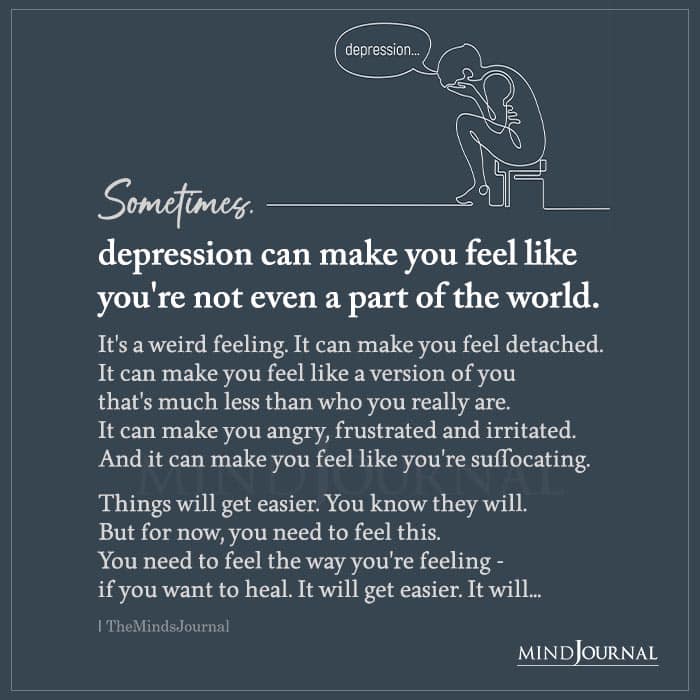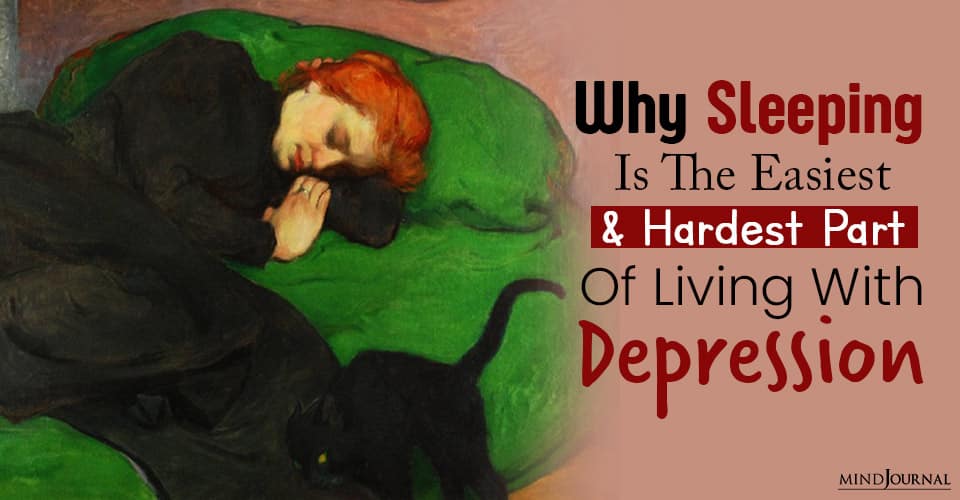Sleeping is an excellent way to refresh your body and mind, but if you live with depression, your relationship with sleep might be even more complicated. If you have depression, you might find it extremely easy to drift off to sleep — but you might also find it difficult to cope with the ramifications of your sleeping patterns.
You may feel like your depression drains the life out of you, sucking away your energy until all you want to do is rest. You might easily sleep for hours on end to refresh your body, only to find that you still feel exhausted. So you may decide to sleep even more to feel energetic again, only to find that you’ve spent hours upon hours sleeping — and not completing day-to-day tasks.
You may feel numb and unmotivated — like sleep is the only thing that will make you feel something again. Sleeping may feel like the easiest option, allowing you to block out the world and help your mind and body reset so that when you wake up, you may feel a little less numb and might actually want to participate in life again.

But in your search for motivation, you might lose large chunks of time as you sleep — pushing you further and further away from your responsibilities.
You may feel unsafe in your own mind, and sleep might seem like the perfect way to remain safe and occupied for hours on end. You may believe that sleeping through your disturbing thoughts will make them subside, even if only for a while. You may even feel willing to live after a long rest, allowing you to take each day hours at a time instead of living moment by moment in hopes of keeping yourself alive. But as you sleep for your own safety, you might miss out on discovering other ways to cope — making future strong emotions feel more daunting.
Also read What To Do If You Are Depressed: A 15-Step Guide
If you live with depression, you may find falling asleep and getting enough rest seem easy, especially when your body and mind constantly feel exhausted. But even though sleeping might seem like the easiest part of living with depression, it can also be the hardest symptom to cope with.
Once you begin sleeping for hours on end in order to feel less tired, keep yourself safe or simply feel anything at all, it’s easy to fall into self-destructive patterns. You may find that sleeping your way through your depression helps you manage your symptoms but also leads you to neglect other responsibilities, making you feel like you’re always “behind.” Sleeping to cope with depression can temporarily make life feel less overwhelming — until you discover just how little time you have to check items off your “to-do list.”

If your depression makes it easy for you to fall asleep, you may feel relieved that you can give your body and mind the rest they need. Sleeping may feel like the easiest way to cope with your lack of motivation or feelings of suicidality because it keeps you occupied and safe.
Also read 7 Steps To Getting The Sleep Your Mind And Body Needs
But your “depression sleepiness” can be deceptively difficult to manage — it can take up so much time that you struggle to keep up with your responsibilities and end up feeling overwhelmed.
So if sleeping is the easiest and most difficult part of your depression, set limits and structure your day to incorporate both productivity and rest. You may find when you change your relationship with sleep, life will feel so much simpler — both asleep and awake.

Resources If you or someone you know needs help, visit our suicide prevention resources. If you need support right now, call the National Suicide Prevention Lifeline at 1-800-273-8255, the Trevor Project at 1-866-488-7386 or reach the Crisis Text Line by texting “START” to 741741.
Written by: Kelly Douglas
Originally appeared on: The Mighty
Republished with permission











Leave a Reply